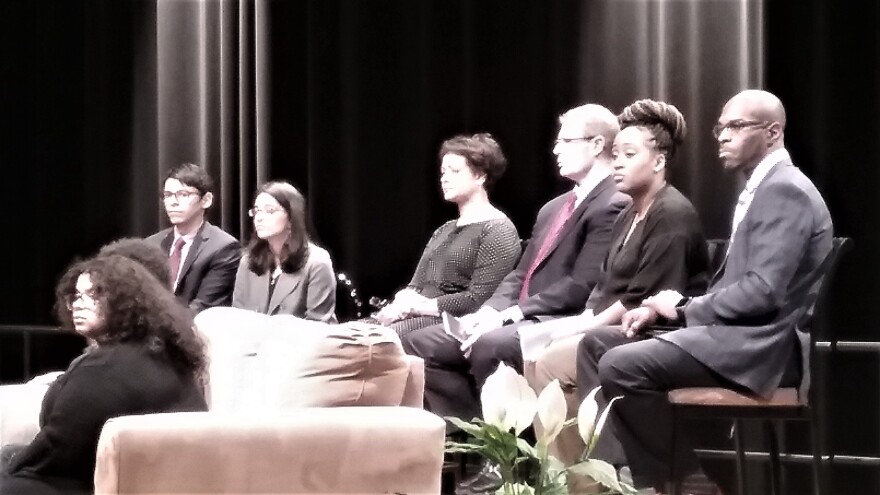Minority students across Erie County would do better in school if they saw more teachers who look like them in the classroom or in the halls. That was the topic during the The Education Trust-New York town hall forum on Education Diversity in Buffalo and Erie County Thursday evening in the WNED|WBFO studios.
The forum was carried live on WBFO's Facebook page and can be watched again here:

The percentage of minority students in the county is far higher than the percentage of minority teachers, in data reported by the Education Trust-New York. Clearly, this reflects much larger minority percentages in Buffalo than in the suburbs, although those percentages are changing.
Moderated by Buffalo News columnist Rod Watson and co-sponsored by the Center for Urban Education at Canisius College, the town hall forum streamed on Facebook Live looked at ways to get more minority teachers in the classrooms and, over time, into supervisory positions in buildings and in districts.

PS 197 Math Science Technology Preparatory School Principal Derek Baker said there can be problems with white teachers dealing with minority students, in his case black students.
"I often tell them you can lead a horse to water but you can't make them drink, and that's what they say all the time," Baker said, "and I look at them, I say, 'Okay. Finish that up' and they look at me like I'm crazy. They say, 'Mr. Baker, these kids don't want an education. They don't want it. The won't do it. They don't want to do this.' I say your job is not to make the drink. Your job is absolutely to make them thirsty."
Baker has one black teacher in his school, while all the rest are white. However, all of his aides and assistants are black.
Teacher Felice Brandy from McKinley High School's Urban Teacher Academy said black teachers do understand black students better because they can come from the same neighborhood and they can judge their behavior more completely.

"The things that I'm able to understand with my students is because I have lived it," Brandy said, "and that can only be communicated when you are around people of color. It just cannot be in a textbook. It has to be real expansive. It has to be something that you get out there and you have and it has to be some people."
Brandy said she can identify from another direction also, as a mom of school kids.
State Assemblymember Crystal Peoples-Stokes said some of the issues are those the black community has to deal with. Peoples-Stokes said re-thinking education is essential.

"We have to learn to respect education again, as a people -- in general, as a people," she said. "Even if the other folks won't give it to us, we have to go get it. I mean, because part of it is not going to be, 'I'm just going to treat you nice and make it real easy for you,' that's not the way America works. It never has since we've been here, but that doesn't mean that we have to stop where they want to leave us at."
Teacher training programs are recruiting more to get minorities to consider teaching, while more programs are being started to help teacher aides and assistants progress to being certified teachers -- like a pilot program funded by Albany. Besides that, predominantly majority teacher staffs are getting constant professional development to better understand minority students and how to help them learn.






